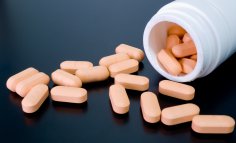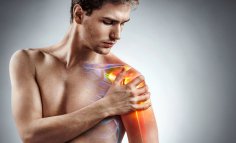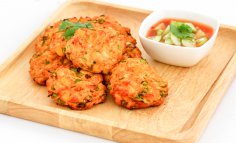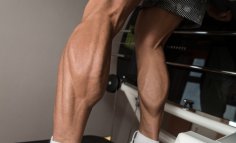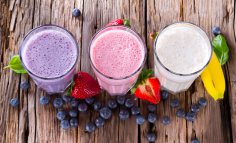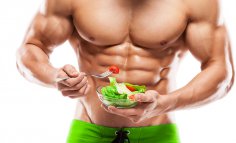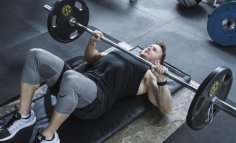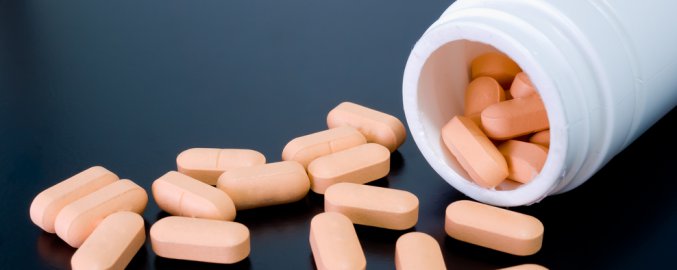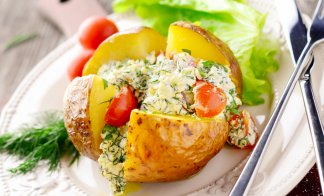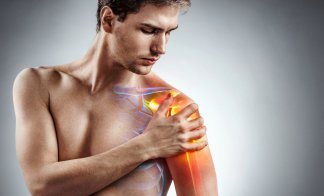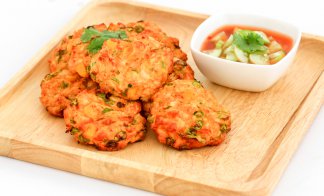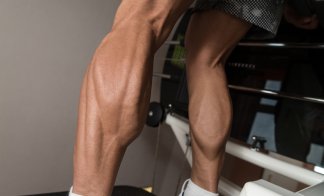Jeg er enig i hva Glucifer sier her, basert på det lille jeg har lest i "hist og pist".

Kan legge til noe informasjon her, skrevet av en som forsker på hormoner (spesielt diverse vekstfaktorer, kjent som DatBTrue på professionalmuscle). Han har en hel guide med utvalgte svar som han gir til folk og guider som han har laget, ofte med fine referanser.
Legger til noe av det han har skrevet som kanskje er relevant:
Om hvorfor GH ikke er anabolt alene:Insulin physiologyIt is often stated that the primary benefit of insulin in bodybuilding is that it increases the uptake of glucose into muscle and further that this movement of glucose is insulin dependent. But that is not exactly true. It may not be widely known but it is clearly established that insulin is NOT needed for glucose uptake and utilisation in man and therefore glucose uptake is NOT insulin dependent
There is a sufficient population of glucose transporters in all cell membranes at all times to ensure enough glucose uptake to satisfy the cell’s respiration, even in the absence of insulin. Insulin can and does increase the number of these transporters in some cells but glucose uptake is never truly insulin dependent.
Stimulatory & Inhibiting actionsThrough stimulating the translocation or movement of 'Glut 4' glucose transporters from the cytoplasm of muscle and adipose tissue to the cell membrane insulin increases the rate of glucose uptake to values greater than the uptake that takes place in the basal state without insulin.
When insulin is administered to people with diabetes who are fasting, blood glucose concentration falls. It is generally assumed that this is because insulin increases glucose uptake into tissues, particularly muscle. In fact this is NOT the case and is another error arising from extrapolating from in vitro rat data. It has been shown quite unequivocally that insulin at concentrations that are within the normal physiological range lowers blood glucose through inhibiting hepatic glucose production without stimulating peripheral glucose uptake. As hepatic glucose output is 'switched off' by the inhibiting action of insulin, glucose concentration falls and glucose uptake actually decreases. Contrary to most textbooks and previous teaching, glucose uptake is therefore actually increased in uncontrolled diabetes and decreased by insulin administration.
When insulin is given to patients with uncontrolled diabetes it switches off a number of metabolic processes (lipolysis, proteolysis, ketogenesis and gluconeogenesis) by a similar inhibiting action. The result is that free fatty acid (FFA) concentrations fall effectively to zero within minutes and ketogenesis inevitably stops through lack of substrate. It takes a while for the ketones to clear from the circulation, as the 'body load' is massive as they are water and fat soluble and distribute within body water and body fat. Since both ketones and FFA compete with glucose as energy substrate at the point of entry of substrates into the Krebs cycle, glucose metabolism increases inevitably as FFA and ketone levels fall (despite the concomitant fall in plasma glucose concentration).
Thus insulin increases glucose metabolism more through reducing FFA and ketone levels than it does through recruiting more glucose transporters into the muscle cell membrane.
NOTE: The above was taken from:
Mechanism of action of insulin in diabetic patients: a dose-related effect on glucose production and utilisation, Brown P, Tompkins C, Juul S & Sonksen PH, British Medical Journal 1978 1239–1242.
Anabolic effectThrough facilitating glucose entry into cells in amounts greater than needed for cellular respiration insulin will stimulate glycogen formation.
It is possible to increase muscle bulk and performance not only through increasing muscle glycogen stores on a "chronic" basis but also to increase muscle bulk through inhibition of muscle protein breakdown. Just as insulin has an inhibiting action in inhibiting glucose breakdown in muscle glycogen, it also has an equally important inhibiting action in inhibiting protein breakdown.
The evidence now indicates that insulin does NOT stimulate protein synthesis directly (this process is under the control of growth hormone (GH) and insulin-like growth factor-I (IGF-I)). It has long been known that insulin-treated patients with diabetes have an increase in lean body mass when compared with matched controls. This results from insulin's inhibition of protein breakdown in muscle tissue.
Growth Hormone Anabolic ActionsGH’s major action is to stimulate protein synthesis. It is at least as powerful as testosterone in this effect and, as they both operate through distinct pathways, their individual effects are additive or possibly even synergistic. In addition to stimulating protein synthesis, GH simultaneously mobilises fat by a direct lipolytic action. Together, these two effects are responsible for the 'partitioning' action of GH whereby it diverts nutritional calories to protein synthesis, possibly through using the energy derived from its lipolytic action. It most likely stimulates protein synthesis through mobilisation of amino acid transporters in a manner analogous to insulin and glucose transporters.
IGF-I also acts directly to stimulate protein synthesis but it has a weaker lipolytic action. GH, IGF-I and insulin thus act in concert to stimulate protein synthesis.
GH and IGF-I act in a promoting manner to stimulate protein synthesis while insulin acts in its characteristic inhibiting manner to inhibit protein breakdown. Thus they are synergistic in their powerful anabolic action.
Insulin is essential for the anabolic action of GH. GH administration in the absence of adequate insulin reserves (as during fasting or in Type 1 diabetes) is in fact catabolic and its lipolytic and ketogenic properties can induce diabetic ketoacidosis. Thus GH and insulin are closely linked in normal physiology and it is of great interest to see that athletes have discovered ways in which this normal physiological dependence can be exploited to enhance performance.
NOTE: The above was "lifted" with little change from parts of:
HORMONES AND SPORT: Insulin, growth hormone and sport, P H Sonksen, Journal of Endocrinology (2001) 170, 13–25
 Litt om resensitizing ift. insulin:
Litt om resensitizing ift. insulin:We are attempting to walk a line.
On the one hand insulin at physiological levels activates the Insulin Receptor but not the IGF-1 Receptor nor the Insulin/IGF-1 Hybrid Receptor. That requires pharmacological dosing that is sustained as we talked about.
In addition insulin increases both GH production & the biosynthesis of growth hormone receptors.
Perhaps of most importance insulin presence during times of GH absence is capable of resensitizing some intracellular signaling pathways. What this means is simply this:
GH just by binding to a GH-receptor on a cell activates several signaling pathways in the cell which are responsible for growth. However when GH does this it turns on the mechanism which will eventually desensitize these pathways. These pathways need a break to resensitize.
Its kinda like they are factory workers and they get commands from GH. But after a while they get tired of hearing the "company line to increase production" so they stop working. If GH would just shutup for a while they can get their break from th GH "noise" and come back to the production line ready to produce again.
Now for some of these signalling pathways...yes they need that break BUT they need something else during that break or else when they are put back to work by the next wave of GH they still can't do much work. What they need is "coffee" and they take that coffee in the form of insulin. So the presence of high physiological to low/mod pharmalogical insulin levels is REQUIRED to fully resensitize some of these pathways.
This holds true for both the GH-GHR pathways, one of which (Stat5b) will end up signaling the creation of IGF-1 but also for an important pathway that IGF-1-IGF-1-receptor intiates that is NECESSARY for hypertrophy. That pathway is the phosphatidylinositol 3-kinase/Akt pathway
Take a glance at the following:

Signalling pathways that mediate skeletal muscle hypertrophy and atrophy, David J. Glass, NATURE CELL BIOLOGY VOL 5 FEBRUARY 2003
Here we have IGF-1 binding to a receptor and the green elements represent a positive pathway to hypertrophy. But look PI3k/Akt is crucial to carry the hypertrophy signal that IGF-1 initiated. But it is subject to desensitization like all pathways and NEEDS the presence of insulin to remain active.
On the other hand (and directly addressing your question) too much insulin for too long has negative consequences. The state of hyperinsulimia reduces the movement of those newly created GH- receptors to the cell membrane. In other words insulin helps create a lot of GH-receptors but too much insulin will hold them back from ever going to the cell membrane and being activated.
Sometimes it is not clear whether hyperinsulinemia results in an enhancement or inhibition of GH action. But if we go to various studies (most are animal models) it is clear that there is a level of insulin exposure that will actually reduce the activation of those intra-cellular signaling pathways.
Continuous insulin treatment in rat liver cells in vitro (i.e. out of the body) reduces GH binding, the number of GH-Receptors, GH-GH-Receptor induced phosphorylation of JAK2 which effects the tyrosine phosphorylation of the very important signaling pathway STAT5b.
I've never been able to exactly translate the message of these studies into a level of use in humans that would be below the threshold of hyperinsulimia. I just feel that spending the majority of the hours of the the day in a state where insulin levels are elevated with exogenic insulin administration moves you in that direction.
I do know that very large amounts of insulin IS SUFFICIENT to reduce GH-Receptor translocation during the period when insulin is spiked (which may be a short period of time) and that defeats the purpose for which I would use insulin in a bodybuilding way.
Also the concern is that tissue will become insulin resistant with chronic use and that will eventually creep one up to what could be characterised as being in a a state of hyperinsulimia even if previously those same doses did not. So breaks are probably important in that regard.
* - if we want we could just simplify everything and say "GH, IGF-I and insulin act in concert to stimulate protein synthesis. GH and IGF-I act to stimulate protein synthesis while insulin acts to inhibit protein breakdown. Thus they are synergistic in their powerful anabolic action." - Insulin, growth hormone and sport, P H Sonksen, Journal of Endocrinology (2001) 170, 13–25
Although accurate that isn't very instructive.

